Jeffrey Seller, co-producer ofRent,on the shows bumpy road to success.
Save this article to read it later.
Find this story in your accountsSaved for Latersection.
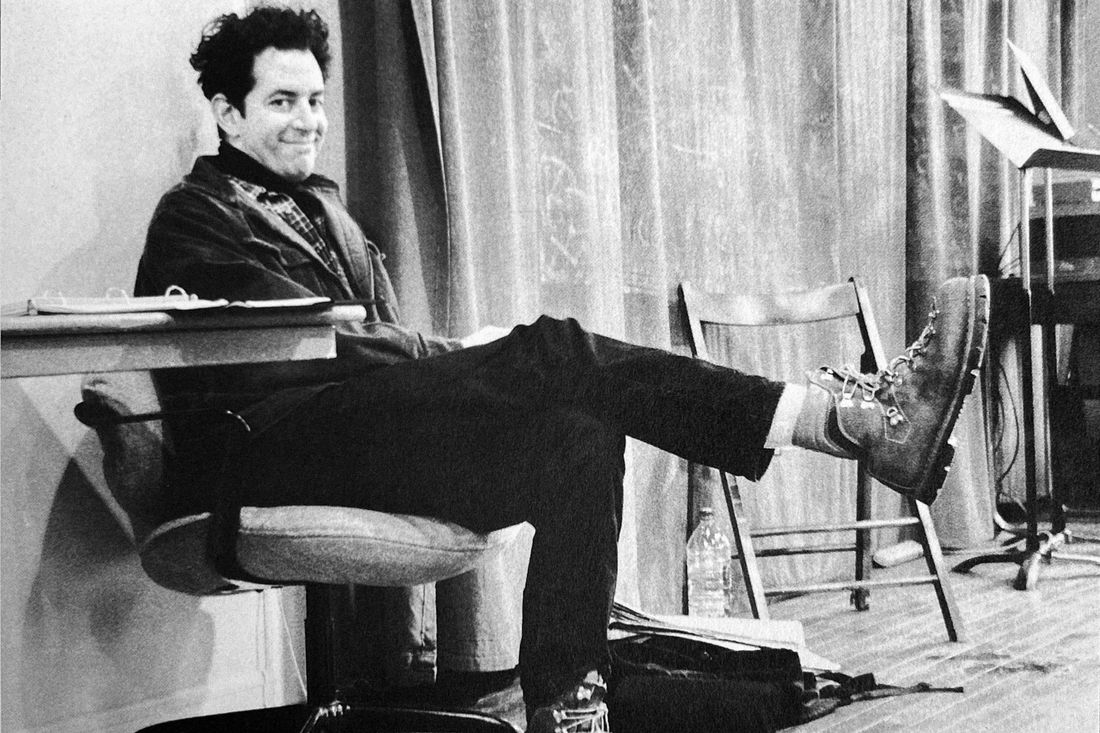
The office is busy.
Im booking four shows at once.
The receptionist rings me.
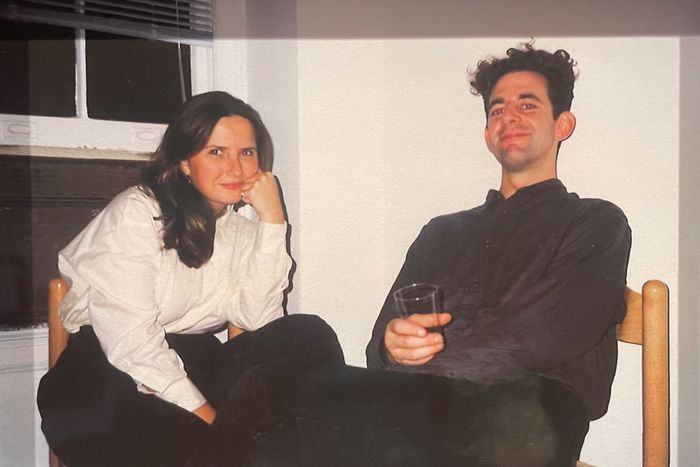
Jonathan Larson on line one.
Jonathan keeps in touch regularly, and Im excited anytime he calls.
Booking pays the bills while Jonathan promises the future.
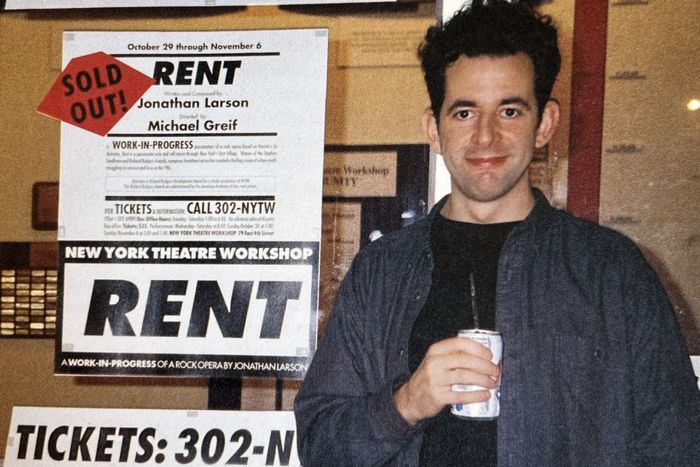
Hello, friend, I say.
Im finally doing a reading ofRent.
Its going to be at New York Theatre Workshop on June 10.
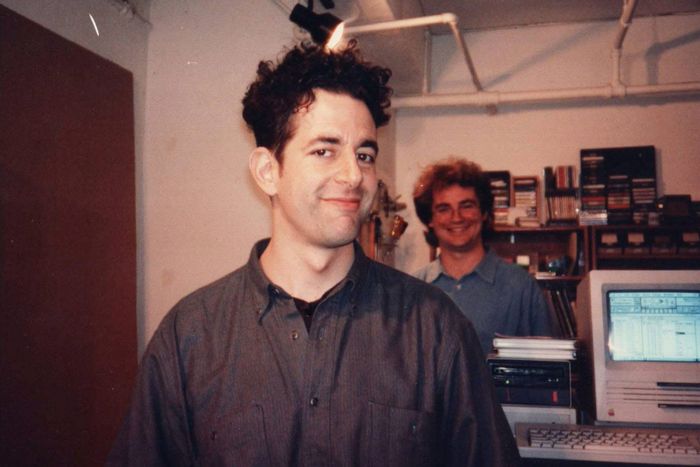
Just so you know, this is going to be theHairof the 90s.
From your mouth, I say.
Jonathan wants to tip the balance.
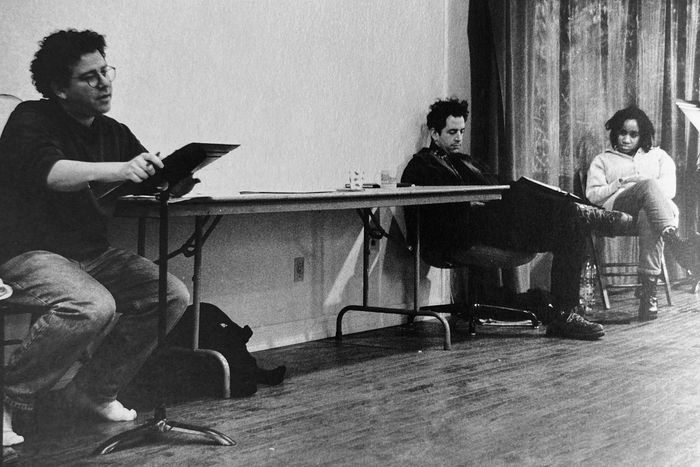
We take the subway from Times Square to 8th Street and Broadway and walk to the Workshop.
The auditorium has about 150 seats.
The stage is big for Off Broadway.
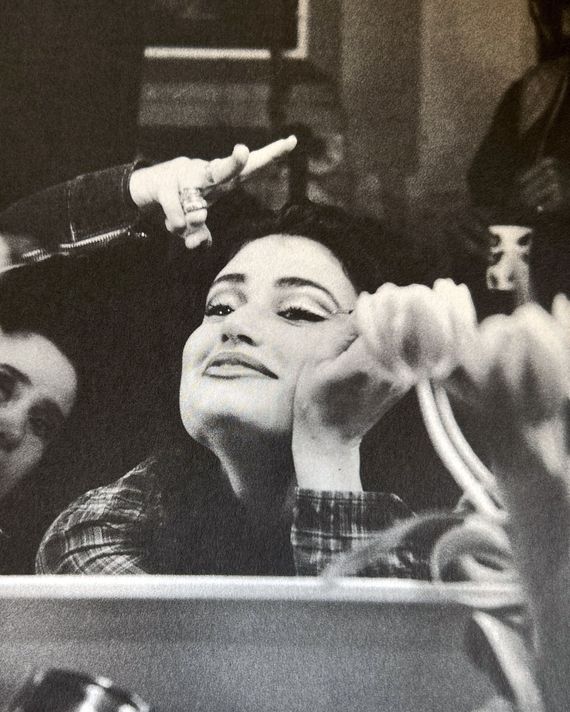
A group of actors take their seats.
They perform the opening number, Rent.
It slams like a jolt of energy.
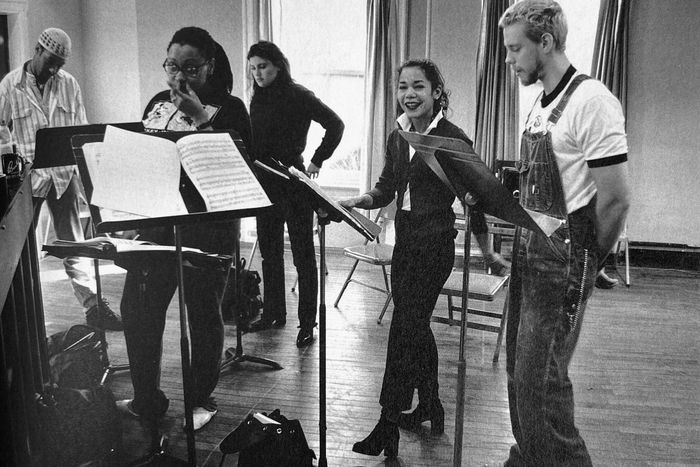
As we move through the songs, the energy dwindles.
I cant latch on to any characters.
I cant find the plot.
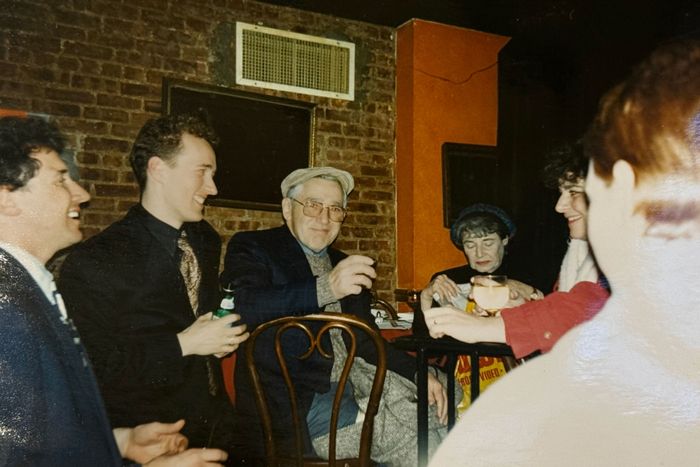
This cycle of songs doesnt electrify.
It feels like were lost in the East Village and cant find a way out.
The second act is no better.
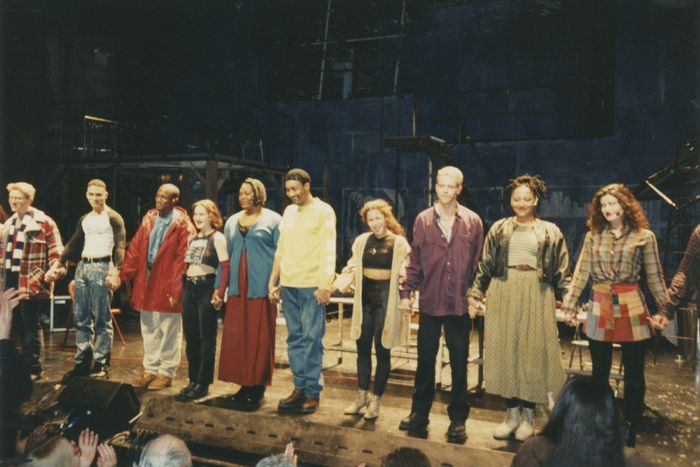
I love Jonathan, but he should just work on something else.
Im deflated and a little bit embarrassed.
Though there were good songs, they were untethered to any identifiable story.
The cast never faltered, but their energy had no focus.
I didnt walk away thinking about any of the characters.
I had hopedRentwould be the answer to musical theater, to my professional life.
Instead, it felt like a mishmash.
At Dianes on Columbus and 72nd Street, were seated at a two-top near the front.
There is space around us.
This is made worse by his needy eyes and floppy curly hair.
His big ears stand up like a German shepherds.
Im all ears, he says.
No shit, I think to myself.
How do I be encouraging and still tell the truth?
Im afraid of hurting his feelings.
Im afraid that hell reject me and not want to be my friend anymore.
I love the songs, I say.
I love the location of the East Village.
I love the grittiness of the opening number.
Thats good, he says.
But then Im lost.
Its a presentation of songs that dont seem to have anything to do with each other.
I dont get it.
None of the characters are coming through.
Im not sure what youre trying to do.
Are you just trying to compose a collage of life in the East Village?
Jonathans ears turn red, his eyes turn down, his shoulders hunch Ive bruised him.
Im not writing a collage, he says.
Then you better tell the story ofLa Boheme.
I need to understand the beginning, middle, and end.
I need to be able to follow Roger and Mimi.
Im going to do this, he says.
Good, because if you dont do this, I think Im going to have to leave this business.
Youll be taking me with you, he adds.
Michaels raw, urban, industrial aesthetic, combined with searing honesty, is exactly what Jonathan wants forRent.
My excitement leaps when Jonathan invites me.
Despite my previous criticism, I am hopeful that he has cracked this musical.
I tell Kevin and hes happy to join me.
We take two seats in the first row.
The house is about half-full.
Stephen Sondheim makes his way down the aisle and sits two rows behind us.
I try not to gawk.
He pulls out a newfangled gadget, the Apple Newton, on which to take notes.
Look, this is either going to be brilliant or a piece of shit, I say.
Its going to be brilliant, he replies, I can feel it.
My heart beats faster.
That was what I thought the last time I saw this.
Two young guys take the stage.
The program says his name is Anthony Rapp.
I remember him as one of the teens inSix Degrees of Separation.
Her name is Daphne Rubin-Vega and her deep voice growls with gravel and gold.
She sings like a boxer in a ring using her voice to knock out her opponent.
Though the plot isnt yet discernible, these downtown bohemians express themselves in vivid, riveting ways.
The story cracks open when Mimi knocks on the door and meets Roger.
They court each other in the most ingenious rock duet Ive ever heard, Light My Candle.
Its flirtatious, its catchy, and it perfectly sets in motion the love story of this piece.
Kevin and I look at each other with the same expression:Holy fuck.
Kevin whispers, Thats the best musical storytelling Ive ever seen.
Inspiration and brilliance are on this stage.
It is messy, but thats a problem for another day.
With Light My Candle,Rentis declaring itself.
The musical unfolds with power and ingenuity.
At one point she picks the cello up and frames her head with it.
Its zany and surprising.
Act One ends in the Life Cafe with a rousing number about Bohemia called La Vie Boheme.
After the blackout, Kevin turns to me.
Get out the checkbook, he says.
We have to do this show.
After the unfortunate first reading, Im relieved.
Slow down, just let me introduce you.
We walk up the side aisle.
Jonathan greets us, eager to hear our reaction.
Youve found the story, I say.
This is my partner, Kevin, I was telling you about.
Hey, thanks for coming, says Jonathan.
No, thankyou, says Kevin.
This is, like, one of the best musicals Ive ever seen.
Jonathan is like a puppy about to receive the best treat ever.
We have to do this with you.
What do you need?
Kevin takes out his checkbook, which kind of embarrasses me, then continues, What do you want?
We just want to help you get this on.
Dont you want to see the second act first?
I already know its great.
This show must be seen, says Kevin.
By the end of the show, after Mimi comes back to life, Kevins mission becomes an obsession.
Seriously, what do you want?
Well, if youre offering, I need to make a recording of this workshop before everyone goes away.
Done, says Kevin.
He cant stop talking on the subway ride home.
This is going to be huge, he says.
Jonathan introduces us to Michael Greif.
Michael is intimidating and cool.
He talks with a trace of sarcasm.
When he says, Nice to meet you, Im not sure he means it.
That he is the perfect director for this show is proven by this workshop.
I am enthusiastic but cautious.
Jonathan keeps saying, This is going to be theHairof the 90s.
I tell him not to say that out loud.
The only attendees are the production team and a few staff members of the Workshop.
Kevin is out of town that night.
No one is in focus.
Mimi seesaws between hopeless heroin addict and righteous truth-teller.
As the sing-through proceeds, everyone in the room slowly sinks into their chairs.
The show has gone backward.
Great tune, great hook.
A couple new songs are not good, especially Your Eyes, the song Roger sings to dying Mimi.
That its the song Roger has been working on all year makes it lamer.
It cant be the final number.
I compose a three-page letter to Jim Nicola, detailing my concerns.
I conclude with the following:
Rentis still in search of a skeleton that holds it together.
There is still no central story.
Its there and we all know it: Its Roger and Mimi.
This new version ofLa Boheme isthree times more complicated than the original and sometimes incoherent.
It must be simplified.
It must be clear.
Im not trying to sound dire, and I dont think theresa crisis here.
I think the piece is begging for heavy editing …
It demands dramatic discipline.
Jim and Michael Greif talk.
Jim seriously considers postponing the production.
Jonathan, who has already given notice at the Moondance Diner, is infuriated and scared.
His chance to finally get a show on is about to slip away.
I call Manny Azenberg, the rabbi of Broadway, and ask for advice.
Dont start unless youre sure the script is ready, he says.
I think Jonathan will explode if we postpone for a year.
Its better than a flop, he says.
Remember, if you have two or three weeks of previews, its nothing.
Theres very little time to make changes when youre performing every night.
Mannys advice is tough to absorb.
Postponing feels impossible and going ahead feels foolhardy.
Jim gives my notes to Jonathan.
He calls and invites me to dinner.
Your notes stung, he says.
They made me really defensive, like What the fuck do you know?
Or at least listen.
So I read them again.
Youre right, I say.
None of us know what were doing.
Were all new at this.
Im going to get this right, he says.
I know its too complicated, he says.
Ill make the beginning clearer.
And I know what youre saying about Mimi.
Thats good, I say.
But What You Own is a fucking great song and Im not cutting it.
Fair, I respond.
Let me drive you home, he says.
He recently bought a beat-up old green station wagon.
This is Rusty, he says.
Good rhyme, he says.
I go to sleep hopeful, once again, that this show might finally come together.
A snowstorm blankets New York the day of the first rehearsal.
Its mostly a day of orientation; everyone introduces themselves in a warm but tentative way.
Paul is a visual artist and sculptor who lives in the East Village.
Hes like a character inRent.
The actors learn the score and Michael starts staging scenes and dances over the holidays.
I return on January 2, 1996, for the first sing-through of the show.
Adam is wearing denim overalls he looks more like Pippin than Kurt Cobain.
He never looks up from his music stand.
But that doesnt even matter.
His voice soars with a muscularity thats thrilling.
Every scene is like a building block placed intentionally over the one below it.
Act Two is even better.
Im still not crazy about the last song, Your Eyes, but Ill harp on that another day.
At the end of the show, Im satisfied and relieved.
I realize Im not viscerally moved at the end.
You did it, I tell Jonathan after the sing-through.
It works, it makes sense.
He smiles with pride.
He knows it as well.
I have one more song to write.
Its for Maureen and Joanne in the second act.
I cant wait, I say.
On this first workday of the year, I walk out into another snowstorm feeling optimistic.
During tech, Jonathan gets sick with a stomach bug and goes to Cabrini Medical Center.
They examine him and determine that he had food poisoning.
Why didnt he go to his doctor?
He doesnt have a doctor, says Jim.
He doesnt have a fucking doctor?
He doesnt even have health insurance.
The dress rehearsal is on January 24, a Wednesday.
Im by myself because Kevin is away.
The stage is organized clutter, like an abandoned lot in the East Village.
The brick back wall is painted blue.
Most prominent is a thick yellow extension cord that runs from the center to off stage left.
The band is under a platform stage right.
The set is raw and beautiful at the same time.
Its minimalism is jarring at first, then its parts come into focus.
The show is electric, the cast is on fire.
Daphne and Adam are fierce.
Angels funeral is sad, powerful, and earned.
Granted, these are friends and family not a real audience but it still feels good.
I approach Jonathan after the show and tell him how great the show is.
Hes a bit distant.
Ive been kind of sick, he says.
Im sure its stress-related.
Are you going right home to sleep?
Right after my interview with theTimes, he says.
Feel good, my friend.
Its going to be great.
I offer up some compliments to Michael after the performance, and he thanks me with his customary coolness.
Wilson is spectacular as Angel, I say.
I was thinking about firing him.
Not now, I hope, I say.
He came a long way tonight, says Michael.
Im pleased by his steady focus and the fantastic world of the play he has created.
Im glad youre back, I say.
I have one more thing to tell you, he says.
This is going to be huge, he says.
This time, I enjoy it, and respond, From your mouth.
I wake up on Thursday filled with anticipation for the first preview.
Tonight is the first preview, I tell Dr. Fine.
Im excited, Im nervous, I have no idea whats about to happen.
I just hope Jonathan isnt mad at me.
What do you mean?
He wasnt his usual self last night, I say.
He was a little bit absent.
At the office, I bound up the escalator, eager to start the workday.
When I enter, the receptionist is looking down.
I walk by two more employees, both looking away from me.
As I pass the office of John, our contract manager, he stops me.
Jeffrey, I have something to tell you, he says.
I stand in the doorway of his office, my coat still on.
I dont know how to say this.
Jonathan Larson died last night.
Blood drains from my head.
I fall against the frame of the door.
Jay Harris called this morning to let you know.
I feel like Im falling backward.
Im so sorry to be the one to have to tell you this.
He collapsed after he came home from dress rehearsal.
His roommate found him on the kitchen floor.
That night, the theater is somber.
No one talks in the lobby.
Tonight it hosts his memorial service.
We take seats in the second row.
Another downtown producer, Anne Hamburger, sits next to me.
Jonathans best friends, Jonathan Burkhart and Eddie Rosenstein, walk onstage.
Their eyes are red.
Holding back tears, Eddie says, This show was the most important thing in Jonathans life.
The only way we could think of to honor Jonathan right now is to do the show.
So the actors are going to sing it but not do the staging.
Theyre also in shock and we dont want anyone to get hurt, says Eddie.
The actors, led by Anthony Rapp, enter to a silent audience.
They sit in the red folding chairs around the two metal tables with their street clothes and head mics.
The show starts gently.
Its as if Jonathan was writing his own life and death.
With each song, the actors commit a little more fully to the moment.
The power of Jonathans words and music take over the theater.
The first act finishes with an ovation bigger than at dress rehearsal.
A man I dont know approaches me.
Are you involved with this show?
Yes, I reply.
I love these people.
I just want to hang out with them.
Im pleased that, even under these circumstances, hes connecting to the show.
Kevin and I get up to meet Jonathans parents, Al and Nan.
I dont know what to say or how to encounter the pain they must be feeling.
We offer our condolences.
He believed in you guys, says Al.
Talked about you all the time.
We just want you to do the show, says Nan.
Thats right, says Al.
You have to do the show.
We wont let you down, says Kevin.
We loved your son, and we love his show, I say.
The beauty and pain of Seasons of Love kicks off Act Two.
The cast performs full-out.
The Ill Cover You reprise, written as Angels funeral, is about Jonathan tonight.
For me, it will always be about Jonathan.
If, indeed, we are what we own, then Jonathan isRent.
At the end of the performance, there is extended applause and the cast exits.
No one moves, no one says anything.
The woman sitting next to me takes my hand.
Anthony emerges from the door upstage center and sits down at the table.
The other actors return and sit down.
We are one community sharing grief.
No one knows what to do next.
Thank you, Jonathan Larson, I say out loud.
There is a long, powerful applause.
Copyright 2025 by Jeffrey Seller.